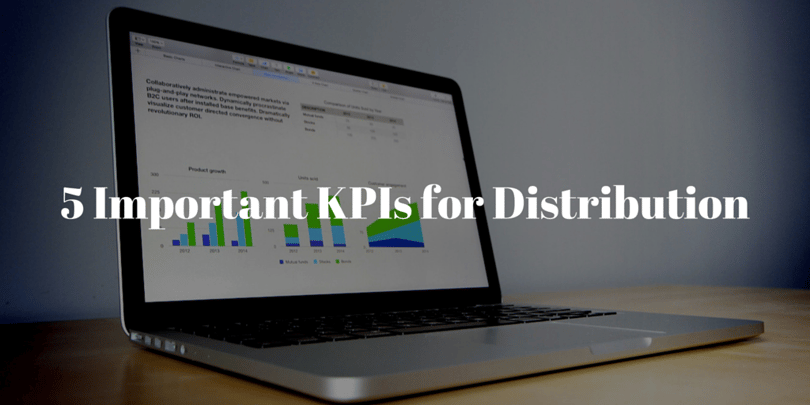
Regardless of industry, the KPIs are tools for measuring performance, for knowing if your business improves or degrades and if an intervention is required.
There are several types of KPIs: strategic KPIs (market share, profit, turnover, customer satisfaction), management KPIs (resource availability, costs, budget), operational KPIs (individual performance, processes performance, products, specifications, efficiency).
In this case, I’ve chosen 5 of the most important KPIs for the distribution industry, which, if not measured and treated properly can negatively impact your business results.
- Inventory value
Inventory management is and must be a top priority for distributors. Keeping your inventory investment low is important. The ability to accurately forecast and predict customer demand is essential to managing inventory and anticipating production needs.
- Profitability
Measuring profitability shows to what extent the amount invested produces the expected result. Using an ERP solution you can measure profitability by product, supplier, customer or company in general. Without this information, the management can not tell if the company is on track and is unable to adjust margins or properly negotiate favorable contracts.
- Returns rate
Any distributor knows how important it is for goods shipped to the customer to fully respect the original order. The returns rate is an indicator that you have to watch it so you can easily identify causes: inconsistent and insufficient cargo, defective or damaged products during transport. Using an ERP solution, you can identify the area causing problems areas and then solve them.
- DIFOT or Distribution in full and on time
How mad do you get when you don’t receive your order in full and in time? DIFOT is a standard KPI to measure the efficiency of the supply chain. It measures if the customer’s order was respected as per quantity and delivery time and is an indicator that influences the rate of customer satisfaction and can simultaneously influence the KPIs of various departments within the company: storage, delivery, logistics, sales and even customer support. The lack of DIFOT can turn a customer into a victim, but an ERP system can prevent this. Using an ERP system that includes powerful forecasting tools is the best way to see the whole picture. SocrateCloud ERP for distribution can help with inventory carrying costs and demand planning.
- Carrying costs
Carrying costs may influence both positively and negatively, the price of a product. If the delivery is not optimized and inefficient, carrying costs will be high, which will affect the volume of orders. SocrateCloud optimizes deliveries to customers by automating the entire delivery process, including the necessary trucks and transport routes. Cross-docking is another technique for optimizing logistics transport costs and SocrateCloud can integrate with other systems used by carriers, so you have maximum visibility.
Conclusion
If you are in distribution industry, then you should know that you should necessarily track these KPIs (and many others) to make sure you can meet your growth objectives and cope with an increasingly competitive market where nobody can make it without access to performant dedicated IT solutions.


